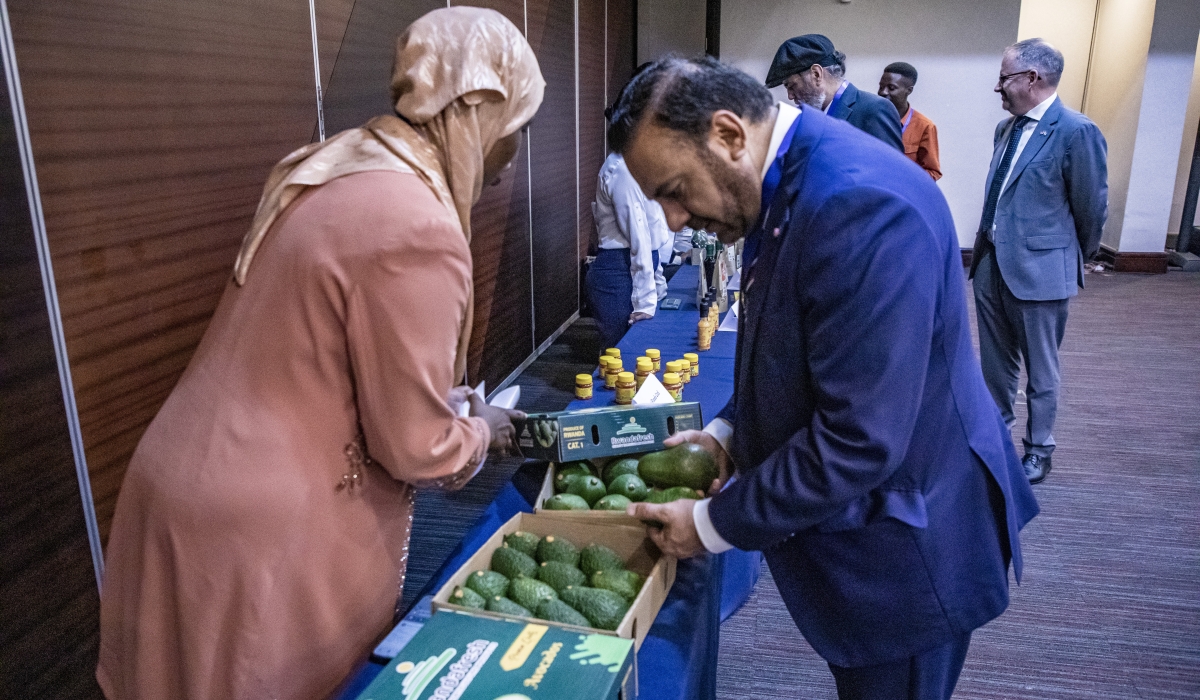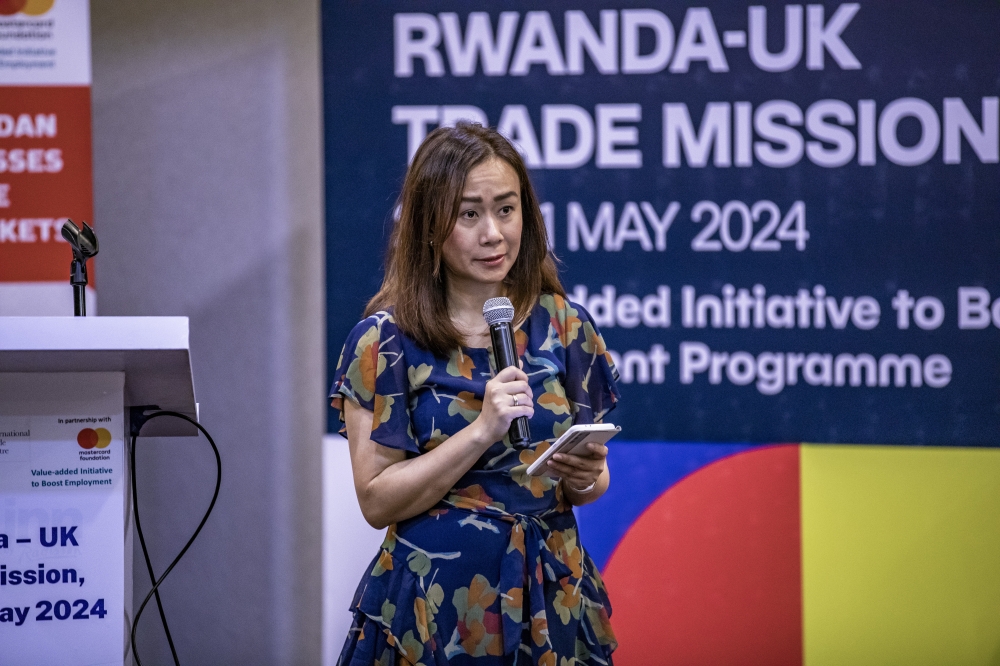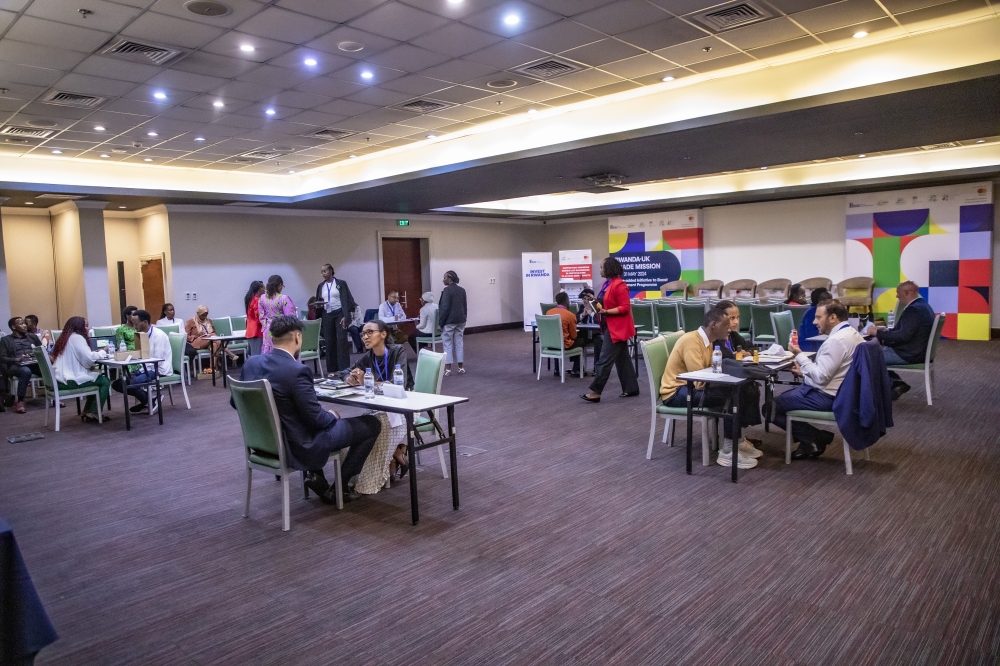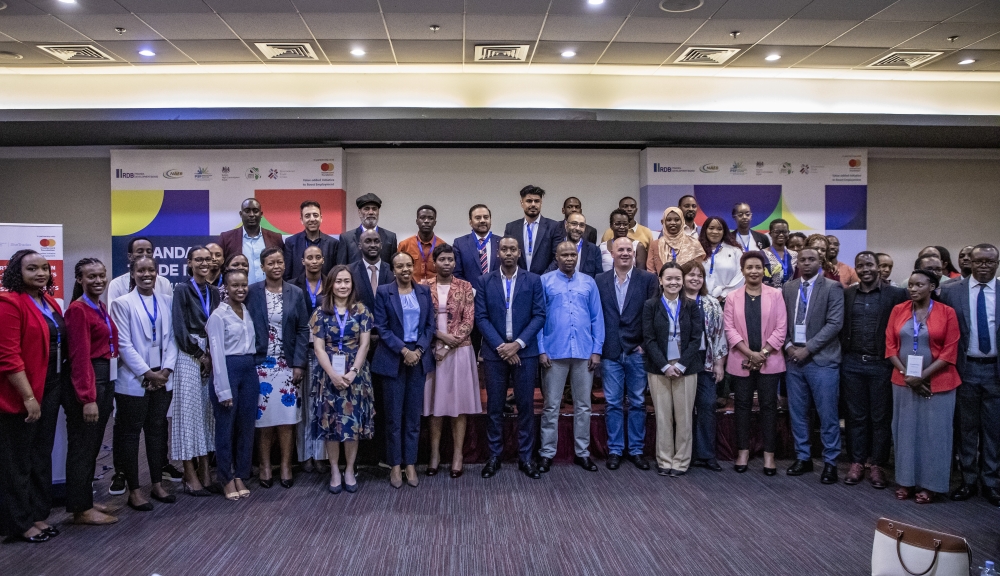
Our Projects are
Transforming African Trade
Quick Contacts
2nd Floor, Fidelity Insurance Centre Waiyaki Way, Westlands

British buyers are currently in Rwanda engaging with women-led horticulture businesses to explore potential trade deals for products such as chilli, avocados, passion fruits, fresh French beans, and other horticultural products.
The visit is part of a Rwanda-UK trade mission running from May 28 to 31. Organised by the International Trade Center (ITC), in partnership with TradeMark Africa and Mastercard Foundation, the mission will feature business-to-business (B2B) meetings and farm visits.
“This Rwanda-UK trade mission aims to strengthen bilateral trade and the horticulture sector between the UK and Rwanda,” Dr. Michelle Kristy, Programme Management Officer at ITC, said after the mission’s opening on Tuesday, May 28.
“What makes this trade mission special is our collaboration with several UK-based chambers of commerce, including the Greater Birmingham Chamber of Commerce,” Kristy added.

The event, Kristy further noted, involves eight UK companies in the horticulture sector and 17 women-led businesses in Rwanda participating in B2B meetings and tailored company visits. The activities are designed to foster engagement and build strong, trust-based business relationships.
“We expect this mission will not only generate trade leads but also result in concrete business deals from the discussions taking place this week,” Kristy said.
ALSO READ: Rwanda to export flowers to UK at zero tariff
Dennis Gatera, the Head of Transaction Structuring and Support at Rwanda Development Board, lauded the mission, underlining that it represents ‘”more than exploring opportunities” for trade.
“We expect to create meaningful relationships with the entire Rwandan horticulture value chain. Together, we can unlock the full potential of Rwanda’s horticulture sector and foster more interconnected and resilient bilateral trade and export industries,” he said.
British envoy welcomes the mission
The British High Commissioner to Rwanda, Omar Daair, welcomed the mission with enthusiasm, emphasising its importance in strengthening trade ties between the two countries and fostering new collaborations between British enterprises and local Rwandan companies.

“We are delighted to welcome this important trade mission from the UK to Rwanda. It’s a wonderful opportunity to deepen our trading relationship and to forge new partnerships between British businesses and local companies. In this case we are particularly delighted that the focus is on female entrepreneurs, of which there are many impressive ones in Rwanda, which I am sure the delegation will soon discover.”
Changing perceptions, tapping into niche markets
Dr. Nasir Awan, President of the Greater Birmingham Chamber of Commerce—one of Europe’s largest and oldest chambers—highlighted the significance of Rwanda-UK relations.
“Rwanda is frequently in the UK news, a positive development, as it has put the country on the map in the UK. Now is the time for Rwanda to capitalise on this attention,” said Awan
“Before my visit, I, like many in the UK and Europe, imagined Rwanda as a barren, undeveloped, and rugged country. I was pleasantly surprised to find it very green, clean, and developed, which is contrary to those perceptions,” he added.
“Meeting businesses and examining the infrastructure here, I see a very progressive country with professional businesses and high-quality produce. Rwanda’s products are suitable for the niche upper market rather than the mass market.
ALSO READ: Avocado: Rwanda mulls tapping into European market via sea
“While the mass market involves high volume but low margins, the niche market offers low volume but high margins, leading to comparable overall returns. The challenge is that the niche market is smaller, but our goal here is to assess and then inform UK companies that Rwanda is a reliable partner capable of producing and delivering quality goods.

“From an importer’s or distributor’s perspective in Europe, we seek reliability, ethical farming, and controlled use of pesticides. The more natural the product, the better, and Rwanda, from what I have observed, offers a variety of natural products,” he added.
“The global demand for natural products is growing as people become more health conscious and aware of the detrimental effects of processed foods. Rwanda has a promising future in this sector. I would advise growers to avoid using excessive fertilisers and chemicals to increase yield. Sticking to natural methods will be where Rwanda can truly make its name.”
Empowering women in Rwanda’s horticulture sector
Among other objectives and targets, the Value-added Initiative to Boost Employment (VIBE) Programme for women-led businesses supports 150 women-led micro, small, and medium-sized enterprises (MSMEs) in the horticulture sector, focusing on green beans, passion fruits, and chili, aiming to generate $10 million in sales through new market opportunities from participating women-led businesses in the country.
Doreca Musenga of TradeMark Africa, Programme Manager of VIBE, Rwanda, shed light on the key benefits of the initiative for involved businesses.
“We are promoting inclusive market access with targeted interventions for women, as well as broader initiatives for both men and women in business. One key component is creating an enabling environment by utilising digital solutions for market access and addressing standards, sanitary, and phytosanitary measures.
“We support private sector MSMEs to overcome challenges in exporting and market access, and we are also building the capacity of government institutions to support the private sector. Additionally, we work with specialised clusters for youth, women, and people with disabilities.”
Changing the narrative: Engaging youth
During a panel discussion on unlocking the export potential of Rwandan horticulture, Elisee Kamanzi, Agriculture Lead at Mastercard Foundation Rwanda, emphasised the sector’s appeal to youth. “If you ask the youth here what motivated them to join horticulture, you’ll hear many reasons, but three stand out; its potential for profitability, quick returns, and the ability to use technology.”
Kamanzi noted, “Young people are tech-savvy, and by integrating technology, we reduce drudgery on the farm. These three reasons are always prominent.”
He added, “When you ask young people why they aren’t in agriculture or what could attract them to sectors like horticulture, they often say, ‘I know horticulture can generate profit, but I don’t have a way to start.’ There’s limited interest from youth in agriculture, but if we can highlight its profitability and show them how to achieve it, we can change that perception. Agriculture isn’t just about farming.”
Among the exhibiting businesses, Patrick Niyonkuru, a representative of a woman-led business, Tropi Wanda, which grows, sources, packs, and exports quality produce, shared his insights: “Since 2020, we have been exporting fruits and vegetables to Europe and Asia. Our initial exports were to Dubai, but we later obtained licenses to ship to Europe. The market is stable, but many farmers haven’t yet grasped the potential impact of trade deals with established global vendors.
“Despite having the produce, companies often serve only a few clients across an entire continent like Europe, which has significant potential. This event is a valuable opportunity, as connections are already being made. We hope to build long-term relationships with these UK buyers, further expanding our clientele because we have the product ready.”
In the fiscal year 2022/2023, Rwanda recorded about $58 million (equivalent to roughly Rwf75.3 billion) from horticulture exports, marking a significant spike from the $6 million earned in 2012.
Avocado exports alone contributed $6.3 million from 3,200 tonnes sold to international markets. Experts anticipate further growth in the sector, driven by increased access to global markets.
Read original article
Disclaimer: The views and opinions expressed in this article are those of the authors and do not necessarily reflect the official policy or position of TradeMark Africa.